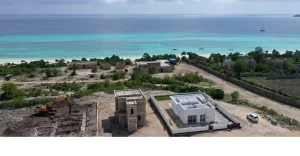DAR ES SALAAM — THE Network Against Sexual Corruption in Tanzania has celebrated a significant victory following the National Assembly’s decision to reject a controversial amendment to the Prevention and Combating of Corruption Act.
The proposed amendment sought to eliminate Section 25, which addresses sexual corruption, and replace it with a provision that would have criminalised victims.
Instead, the Assembly upheld Section 25 and imposed stricter penalties, increasing prison sentences from three to ten years and doubling fines from 5m/- to 10m/-.
The Network, which comprises over 200 organisations nationwide, hailed this outcome as a major win for justice, particularly for women and vulnerable groups who are frequently targeted by sexual corruption.
Professor Penina Mlama, Chairperson of the Network, commended the National Assembly’s decision, noting its alignment with the Network’s advocacy efforts. She praised organisations like the Women’s Judges Association and individuals such as Retired Judge Eusebia Munuo for their crucial role in protecting the law.
ALSO READ: Temeke Anti-Corruption Bureau uncovers Major Irregularities in development projects
“This victory demonstrates the power of collective action against oppressive systems,” said Prof Mlama.
“It shows that when we unite and advocate for justice, we can protect the vulnerable and hold those in power accountable. Our fight against sexual corruption must continue across all sectors of society.” Sexual corruption, as defined by Section 25, involves demanding sexual favours in exchange for rights, privileges, or opportunities. Unlike financial bribery, it exploits the vulnerable, often leaving victims dehumanised and deprived of opportunities.
The Network’s statement emphasised the prevalence of sexual corruption in Tanzania, particularly affecting women in education, healthcare and domestic work. Findings from the Prevention and Combating of Corruption Bureau (PCCB) reveal alarming rates of sexual corruption across various sectors.
The Network also highlighted the broader economic and societal impacts of sexual corruption, which undermines human dignity, disrupts institutional integrity and fosters a culture of exploitation. Increased public education has led to greater awareness and a growing rejection of such practices, with more victims coming forward.
In light of the National Assembly’s decision, the Network urged continued vigilance in enforcing the law and called on Tanzanians to maintain pressure on authorities to combat all forms of sexual corruption.
“The rejection of the proposed amendment is just one step,” Prof Mlama said.
“We must ensure that Section 25 is effectively enforced, protecting victims and holding offenders accountable.” The Network also expressed gratitude to international stakeholders, the media and the Tanzanian public for their support in rejecting the amendment, affirming the country’s commitment to justice and human dignity.
Source: allafrica.com














